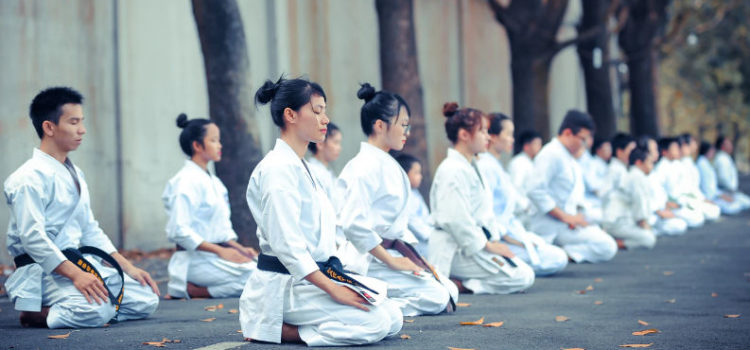

This article gives you a glimpse of what you can learn with Shortform. Shortform has the world’s best guides to 1000+ nonfiction books, plus other resources to help you accelerate your learning.
Want to learn faster and get smarter? Sign up for a free trial here .
Why is it important to practice self-discipline? How does your capacity for self-discipline influence your life outcomes?
By practicing discipline, you gain control over your thoughts and actions. This allows you to overcome bad habits, false excuses, distractions, and emotions in order to effectively accomplish daily tasks that lead to your long-term goals.
Keep reading to learn about the psychology of discipline and some strategies to help you improve it.
What Is Self-Discipline?
Most of us have dreams and aspirations about things we want to accomplish or the type of person we want to be. Even if you don’t have a clear vision for yourself, you’re likely capable of many great things. You might even have talents or resources to make certain goals more attainable. However, it’s discipline that helps you take control of your life and drive the actions necessary to develop good habits, reach your goals, and become the best version of yourself.
But what exactly is discipline? Discipline can be defined as making choices that are unpleasant in the short term but better for you in the long term. These hard choices guide you toward your goals.
Unlike motivation or discipline from someone else—for instance, a motivational speaker or drill instructor—(temporary influences that are unreliable and outside your control), self-discipline s consistent willpower that you exert over your mind and body enabling you to do what’s necessary to reach your goals despite your feelings or external influences.
The Dilemma of Discipline
We’d all like to believe that we have control over our own behavior, but the truth is that accessing our willpower is often a struggle. Often we’re at odds with ourselves: We want to achieve our long-term goals, but we also want to do what feels good right now. We might desire the long-term happiness of a healthy, slim physique, but we also want the 30-second happiness of devouring a silky lemon cupcake. We know we can’t have both, but that doesn’t stop us from wanting both.
In psychology, discipline is most commonly called “self-control.” Self-control is what allows us to override the tendency to choose immediate gratification in the interests of our long-term goals. In the human brain, self-control is governed by the prefrontal cortex. Some people are born with a larger, better developed prefrontal cortex than others, which makes a difference in their behaviors. When people with a larger prefrontal cortex think of saying “yes” to a second helping of dessert, their brains remind them that this is a poor idea, and they say “no” instead.
The rest of us have to contend with having what scientists call “one brain but two minds.” One mind caters to immediate gratification. The other mind delays gratification in the interest of achieving long-term goals. Our prefrontal cortex struggles to keep us focused on the long game, but when we are tired, distracted, stressed, or even mildly intoxicated, we tend to give in to immediate gratification.
TITLE: The Willpower Instinct
AUTHOR: Kelly McGonigal
TIME: 42
READS: 87.9
IMG_URL: https://www.shortform.com/blog/wp-content/uploads/2020/11/the-willpower-instinct-cover.png
BOOK_SUMMARYURL: the-willpower-instinct-summary-kelly-mcgonigal
AMZN_ID: XYZ
Strategies to Improve Your Discipline
While we can’t alter the fact that we have conflicting desires, we can learn strategies to minimize those conflicts.
Strengthen Connectivity With the Prefrontal Cortex
According to Anna Lembke, the author of Dopamine Nation, one way you can develop more discipline is by reinforcing the connection between your prefrontal cortex and the brain’s reward pathways through deliberate use of the prefrontal cortex.
To that end, she advises that you make an effort to think about the future. Lembke found that just thinking about what you want your life to look like 10 years down the road activates your prefrontal cortex, helping you gain perspective and prioritize long-term rewards over immediate gratification.
TITLE: Predictably Irrational
AUTHOR: Dan Ariely
TIME: 46
READS: 85.8
IMG_URL: https://www.shortform.com/blog/wp-content/uploads/2020/11/predictably-irrational-cover.png
BOOK_SUMMARYURL: predictably-irrational-summary-dan-ariely
AMZN_ID: XYZ
Introduce Reinforcements
When you exert discipline over yourself, you make choices that are unpleasant in the short term but better for you in the long term. In other words, you forego immediate gratification for a future reward, which requires sacrifice. Sacrifice is unpleasant, so you must find a way to mitigate it. This can be done by introducing reinforcements.
Reinforcements help maintain continued behavior by allowing you to experience a win after a certain action. They are especially useful when you are trying to form a “habit of avoidance.”
Habits of avoidance include things like not drinking alcohol for a month and not spending money on unnecessary items. The habit is one of simply not doing something you don’t want to do, so there is no real element of action that creates a sense of progress. Reinforcements can help make the behavior more satisfying.
- For example, each time you pass up buying an unnecessary item, you can transfer the money to a special account earmarked for something you want, like a vacation or leather boots.
- The satisfaction of watching your vacation or boot fund grow reduces the feelings of sacrifice in not buying something you don’t need.
TITLE: Atomic Habits
AUTHOR: James Clear
TIME: 54
READS: 1490.5
IMG_URL: https://www.shortform.com/blog/wp-content/uploads/2020/11/atomic-habits-cover.png
BOOK_SUMMARYURL: atomic-habits-summary-james-clear
AMZN_ID: XYZ
Discipline and Habit Formation
In psychology, discipline or self-control is often discussed in the context of habit formation. Lack of self-control is believed to be one of the main reasons people fall off the track when trying to do anything hard to achieve a certain goal (e.g. exercising to lose weight). We begin a new behavior but struggle to follow through because it’s hard to keep up the discipline.
However, what we fail to realize is that habits are hard only in the beginning. Forming a habit takes more discipline than sustaining one.But when we exercise discipline, we’re training ourselves to act in a certain way. And when we do it long enough, the new behavior becomes routine and no longer requires discipline.
How long it takes to form a habit depends on the nature of the habit. Self-help advocates often assert that it takes 21 days to make a change. However, researchers at the University College of London determined that it takes about 66 days—easier behaviors take fewer days to establish and difficult ones take more.
So don’t quit too soon. Decide on the right habit and apply discipline, giving yourself enough time for it to become second nature. Remember that success is sequential, and build new habits one at a time, building on the success of the previous habit with each new one.
TITLE: The One Thing
AUTHOR: Gary Keller
TIME: 26
READS: 29.8
IMG_URL: https://www.shortform.com/blog/wp-content/uploads/2020/01/onething-cover.jpg
BOOK_SUMMARYURL: the-one-thing-summary-gary-keller
AMZN_ID: B00C1BHQXK
Final Words
If you want to master your mind, become healthier, and achieve your highest goals, practicing discipline will drive the actions necessary to do so. In psychology, discipline or self-control is considered a trainable attribute.
So, if you have trouble disciplining yourself, don’t despair. With practice, you can cultivate discipline and apply it to achieve your goals and effect lasting, positive changes in your life.
If you enjoyed our article about the psychology of discipline, check out the following suggestions for further reading:
In The Daily Stoic, Ryan Holiday and translator Stephen Hanselman share insights from the ancient Stoic philosophers on how you too can live a good life. It was a bestseller in 2016 and has since been expanded into a thriving podcast and website. At the core of Stoicism is the belief that the cardinal virtues—self-discipline, courage, justice, and wisdom—are the source of internal stability and the measure of a good life.
Like most people, you’re probably easily distracted by wandering thoughts or social media updates while trying to be productive. In Deep Work, Cal Newport teaches you how to develop your focus and discipline to resist distractions so that you can rise to the top of your field and drive toward your most important goals. He contends that focus is like a mental muscle: Through deliberate training, you can strengthen your focus and expand your mental capacity.
A cult classic among professional athletes, The Obstacle Is the Way is a guidebook to solving any problem preventing you from achieving ambitious goals. It’s based on the tenets of Stoicism—an ancient Greek philosophy emphasizing rationality, discipline, and personal responsibility. Ryan Holiday argues that by choosing to view your obstacles in an empowering way, you can turn them into your greatest assets.

Want to fast-track your learning? With Shortform, you’ll gain insights you won't find anywhere else .
Here's what you’ll get when you sign up for Shortform :
- Complicated ideas explained in simple and concise ways
- Smart analysis that connects what you’re reading to other key concepts
- Writing with zero fluff because we know how important your time is







am interested in pschological discipline after getting medication from my therapist